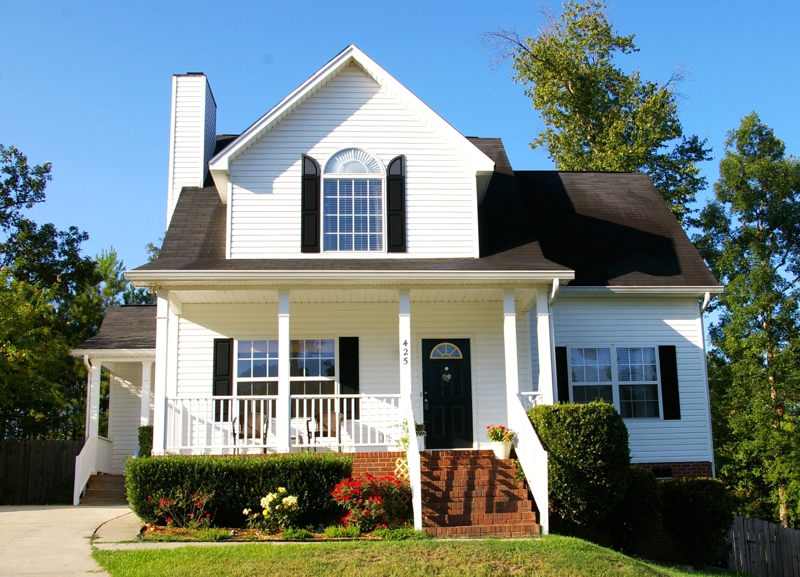Supplying Lansing Illinois USDA Home Loans Since 1997
Lansing, IL USDA Rural Mortgage
As an approved USDA Rural Housing lender, Smart Mortgage Centers is excited to bring you the option of a USDA mortgage in Lansing . For those who qualify, 100% financing is available bringing the dream of home ownership within reach. With low interest rates and flexible guidelines a USDA home loan could help you achieve your financial goals.
Qualifications for a Lansing USDA Mortgage
Eligibility is based both on the property and the borrower. The property must be located in a rural development eligible area, and be occupied as your primary residence. Your Smart Mortgage Centers loan consultant can help you determine whether there are properties near you that qualify. Even if you do not consider your area “rural” you may be surprised to learn there are eligible properties nearby. To qualify for a USDA Rural Housing loan a borrower must meet income (people who earn above a certain threshold are ineligible), credit, and employment requirements and be a US citizen, US non-citizen national, or a qualified alien. Contact us today and we’ll help you determine whether or not you may be eligible for Lansing USDA financing. If a USDA mortgage is not a good fit for you don’t worry, we have a wide variety of home loan programs to help you meet your goals.

Call the USDA Mortgage Hotline
Toll Free 888-882-1058
3 Reasons to Consider a USDA Mortgage
- Rural homes in Lansing, Illinois are often financed through USDA Rural Housing Loan programs. Although it is certainly not new, the USDA Rural Housing Loan program may be one of the most overlooked opportunities available to prospective home buyers. Established in 1949 by the US Department of Agriculture, its goal is to give residents of rural areas the opportunity to own a home and promote development in underdeveloped areas.
- There are certain eligibility requirements for both the borrower and the property to be purchased. Borrowers must meet certain income, credit and employment requirements while the home to be purchased must lie within the USDA’s Property Eligibility Map. Since the program began, over 2.7 million rural borrowers have become proud homeowners. Here are 3 compelling reasons why this is such an outstanding prospect for anyone thinking of buying a home:
- Rural does not mean remote Please do not assume that the eligible properties are all located miles and miles from civilization. A quick check with the USDA’s website will allow you to track down homes that meet the USDA guidelines. Guess what? Many of them are in close proximity to some of the nation’s fastest growing metro areas – including places surrounding major cities.

Find out if a Lansing home is USDA Eligible
Toll Free 888-882-1058
USDA Affordability
Unparalleled affordability Lansing USDA financing is one of the only mortgages available other than those for members of the US military that offers zero money down (note: there may be some programs available in certain locations where 100% financing may exist). It is an excellent option for those with lower incomes or less than perfect credit. Mortgage insurance is not required and loans can be used to purchase or refinance. Monthly payments are kept affordable, thanks to the fact that the loans are 30-year fixed rate mortgages. More borrowers are eligible than ever before As part of the American Recovery and Reinvestment Act that came about in 2009, the guidelines for USDA home loans have become more streamlined and opened the door for higher eligibility rates. Borrowers must still meet certain income requirements and provide a credit report; however, the guidelines are not as strict as they were previously. To learn more about Lansing USDA Rural Housing loans and their eligibility requirements, discuss your home purchase plans with a licensed mortgage consultant from Smart Mortgage Centers.
Lansing /ˈlænsɪŋ/ is the capital of the U.S. state of Michigan. It is mostly in Ingham County, although portions of the city extend west into Eaton County and north into Clinton County. The 2010 Census placed the city’s population at 114,297,[7] making it the fifth largest city in Michigan. The population of its Metropolitan Statistical Area (MSA) was 464,036, while the even larger Combined Statistical Area (CSA) population, which includes Shiawassee County, was 534,684. It was named the new state capital of Michigan in 1847, ten years after Michigan became a state.
The Lansing Metropolitan Area, colloquially referred to as “Mid-Michigan”, is an important center for educational, cultural, governmental, commercial, and industrial functions. The area is home to two medical schools, one veterinary school, two nursing schools, and two law schools – Michigan State University College of Law and Western Michigan University Cooley Law School. It is the site of the Michigan State Capitol, the state Supreme Court, the Court of Appeals, a federal court, the Library of Michigan and Historical Center, and headquarters of four national insurance companies.
